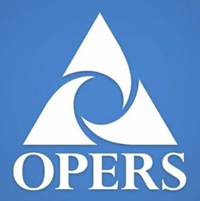Ohio’s Educators Expect Education Policy Answers from Presidential Debate
“The president can greatly shape the direction of education policy for the nation, directing national policies for everything from whether to provide schools with crucial COVID-19 relief funding to whether to hold for-profit charter schools to the same level of accountability as America’s public schools,” OEA President Scott DiMauro said. “Ohioans have a right to know where each candidate stands on the educational issues before they cast their ballots in this election.”
Early in his campaign, Joe Biden released a comprehensive plan for K-12 and higher education in the United States, pledging to invest in universal pre-kindergarten, triple the funds for Title I schools to ensure resources go to low-income communities where the need is highest, address racial injustice, and expand community schools. Biden also supports small class sizes and free tuition at community colleges, as well as at public colleges and universities for families making less than $125,000 a year. Throughout his career, Biden has championed America’s educators, including his wife, Jill, and has promised to appoint a teacher to serve as Secretary of Education, if he’s elected.
“Donald Trump’s Education Secretary, Betsy DeVos, has no experience in a classroom and no plans for America’s public schools, other than continuing to funnel federal funding to private and for-profit charter schools, which perform poorly in comparison with local public schools serving similar students,” DiMauro said. “President Trump and Betsy DeVos have continued to push for so-called ‘school choice’ on principle, without any consideration for the actual educational outcomes or the damage these voucher programs cause in low-income and communities of color, especially.” Detailed analyses of the disastrous results of Ohio’s voucher program can be found here and here.
Ohioans are also anticipating a robust discussion on Trump’s latest ideological overreach: his proposal for a ‘1776 Commission’ to shove a federally controlled curriculum down our kids’ throats. “Shaping curriculum content is not a federal responsibility; it has always been a state’s right. One would think that Trump and his allies would have remembered parents’ outrage over the Common Core before backing this even greater federal government overreach. It would strip American school districts of their legally-enshrined local control, which is, in itself, concerning. The truly propogandist nature of the Commission’s curriculum is downright alarming, It’s what China does and the Soviet Union used to do, never the United States. Until this President,” DiMauro said.
“As a Social Studies teacher, this attack on public education is personal,” DiMauro added. “I became an educator 30 years ago to provide students the critical thinking and decision-making skills they need to be successful citizens in our democratic society. These skills can only be learned through a well-rounded and robust curriculum that neither hides nor celebrates all chapters of American history. Silencing educators with executive orders that create heavy-handed national commissions and threatening to withhold critical federal funding from schools that don’t fall in line with federal dictates is wrong in every way.”
President DiMauro and several educators across Ohio will be available after Tuesday’s debate to offer their perspectives on education issues raised by the candidates. Please contact OEA Media Relations Consultant Katie Olmsted to arrange interviews.
In Wake of Release of Barebones 2020 Ohio School Report Cards, Ohio Education Association Urges Overhaul of State’s Broken Report Card System
“These latest school and district report cards shine a spotlight on the major problems with the entire report card scheme,” OEA President Scott DiMauro said. “The fact that the state recognizes that any 2020 letter grades and rankings would be useless without spring testing data proves just how overly-reliant the existing grade card system is on standardized tests. If the essential value of the state’s report card system is standardized test results – which do not accurately represent how a student, teacher or school is performing — the state’s current report card system has no value at all.”
“These tests and the algebraic contortions the state’s report card system twists them into have always been stacked against low-income students, especially. OEA is not afraid of accountability. But the state must design a fair, informative, and transparent accountability system,” DiMauro said.
Spring standardized testing was suspended in Ohio after school buildings shut down in March to protect students and educators from COVID-19. As schools return to session this fall, many Ohio lawmakers recognize the futility of resuming standardized testing in an environment that is now anything but standard.
Not a single educator has indicated to us that missing the spring tests harmed a single student.
If passed, Senate Bill 358 would require the Ohio Department of Education to seek a federal waiver of testing requirements and suspend the Kindergarten Readiness Assessment and the fall 3rd grade English test.
Further, SB 358 calls for suspending school and district report card ratings for the 2020-21 and 2021-22 school years – a measure welcomed by OEA. “Due to COVID-19, school districts will continue to experience barriers to education service delivery and instability in student data (particularly in districts with high concentrations of poverty). It would be misleading and unfair to require report card grades or punitive measures based on report card data during this time,” OEA Vice President Jeff Wensing said in support of SB 358 in early September. Click here to read Vice President Wensing’s full statement.
“Senate Bill 358 is a good start, but much more work is needed to address the foundational issues with Ohio’s current school report card system,” DiMauro said. “The cookie-cutter A-F grades are a meaningless and simplistic way to describe students’ educational experiences. All they accurately measure are a student’s and district’s wealth. Using these tests to punish low-income students by providing cover for taxpayer money to be diverted to worse-performing private and charter schools while undermining local control in poor districts is a stain on Ohio’s education system. The state needs a truly informative accountability system that fairly identifies improvement areas while empowering stakeholders to direct resources where they are needed most. That – rather than punishing poor kids and schools – should be lawmakers’ guiding light.”
More information about OEA’s recommended reforms can be found at ohea.org/oea-calls-for-sweeping-changes-to-state-report-cards/
September 2020 OEA Retirement Systems Update
STRS Posts 3.14% Return for FY 2020
STRS has reported a total investment return of 3.14% for the fiscal year ending June 30, 2020. The return, while positive, fell below the assumed rate of return of 7.45%. Additionally, despite the positive return on investments, total assets fell during the year by about $1.8 billion due to negative cash flow. STRS made benefit payments of about $7.5 billion in fiscal 2020 exceeding total contributions and investment returns during the period.
In October, the Board’s actuary will present the results of the annual pension valuation report. The report will show the actuarial impact of the investment return as well as how other economic and demographic factors affected the funding status of the pension plan.
SERS Board Continues to Discuss Pension Sustainability
On Thursday, August 20, 2020 the SERS Board held an online meeting to continue discussions about potential benefit changes aimed at enhancing the long-term sustainability of the pension plan. All discussions are preliminary in nature and many would require a change in state law to take effect.
One area of discussion was the cost of living adjustment (COLA). COLA payments for SERS retirees have been frozen for the last three years. Beginning in 2021, the COLA is to be based inflation, using the Consumer Price Index (CPI-W), capped at 2.5%. However, state law gives the SERS Board authority to adjust COLA payments if its actuary determines such a change is necessary to preserve the fiscal integrity of the retirement system.
During the Board meeting, John Garrett of Cavanaugh MacDonald Consulting (the actuarial firm hired by the Board), provided information on how some other states handle COLA payments. Pension plans in several states tie COLA payments to the investment performance of the fund, increasing or decreasing amounts based on market returns. Several Board members expressed interest in this concept while noting that SERS should place an upper and lower limit on COLA payments.
Potential changes to service credit and final average salary were also discussed. Currently, under state law, SERS bases a year of service credit on at least 120 workdays. Board member Daniel Wilson expressed support for basing a year of service credit on 180 days. Such a change would lead to about 10% of current employees being reduced from a full year of service credit to a prorated amount. Changes to the calculation of final average salary from the three highest years to the five highest years or three highest consecutive years were also discussed. Changes to service credit or final average salary would require a change in statute and cannot be made by the SERS Board.
OPERS Announces 2021 COLA Payment
OPERS has announced the cost-of-living adjustments (COLA) payments that will be made to retirees in 2021. For those who retired on or after January 7, 2013, the COLA is based on the Consumer Price Index (CPI-W) compiled by the US Bureau of Labor Statistics. This is the same index that Social Security uses; however, the time periods used are different so the rate might not always match up. The OPERS COLA for 2021 is based on rate of inflation from June 2019 to June 2020–0.5%.
OPERS retirees who retired prior to January 7, 2013, were grandfathered in OPERS pension reform legislation, and continue to receive a 3% COLA.
![]() Click here to download a copy of this September 2020 Report to the OEA Board of Directors. Previous Retirement Systems Updates can be viewed under the Affiliate Resources tab on the OEA website.
Click here to download a copy of this September 2020 Report to the OEA Board of Directors. Previous Retirement Systems Updates can be viewed under the Affiliate Resources tab on the OEA website.
2020-2021 OEA Member Resource Guide
Use this guide as an overview to help you make the most of your OEA Membership. Within, you’ll learn more about:
- Ways to Become Involved
- Fighting for Public Education
- OEA Staff, Leadership, and Board of Directors
- OEA Higher Education Benefit
- Awards and Scholarships
- Valuable NEA Member Benefits and Services
Throughout our more than 150-year history, OEA members have been involved in every struggle and effort to advance the finest of America’s dreams: a quality public education for every child.
If you have additional questions, contact us at 1-844-OEA-Info (1-844-632-4636) or send us an email to: membership@ohea.org.
Moved recently? Contact the OEA Member Hotline to update the address on file at 1-844-OEA-Info (1-844-632-4636) or email, membership@ohea.org. Representatives are available Monday-Friday, from 8:30 a.m. to 6 p.m. | OhioSchools — Past Issues
![]()
![]() Oh Yes, We’re Social — Join the Conversation!
Oh Yes, We’re Social — Join the Conversation!
![]()
OEA Leaders Working to Shape State, Federal COVID-19 Response Policies
On Wednesday afternoon, OEA President Scott DiMauro delivered a statement to the National Academies of Science, Engineering and Medicine on the need to prioritize teachers and other education employees as allocation plans for the distribution of a COVID-19 vaccine are made. OEA Vice President Jeff Wensing testified before Ohio lawmakers Wednesday in support of proposed changes to the state’s education laws in response to COVID-19.
“As the school year begins our students and educators are facing many challenges. Whether classes are in-person, online or a combination of the two, it is unlike any year that came before. Recognizing this, Senate Bill 358 (SB 358) would extend flexibility in several areas,” Vice President Wensing told Senate Education Committee members. Click here for Wensing’s full statement
OEA applauds calls in SB 358 to require the Ohio Department of Education to seek a federal waiver of testing requirements and suspend the Kindergarten Readiness Assessment, some high school end-of-course exams, and the fall administration of the 3rd grade ELA test. OEA also supports the provision of SB 358 allowing local flexibility on teacher evaluations and urges lawmakers to amend the bill to extend the House Bill 164 prohibition on using student growth data in teacher evaluations through the 2021-22 school year. SB 358’s suspension of school and district report card ratings for the 2020-21 and 2021-22 school years is wholeheartedly welcomed by OEA.
“Due to COVID-19, school districts will continue to experience barriers to education service delivery and instability in student data (particularly in districts with high concentrations of poverty). It would be misleading and unfair to require report card grades or punitive measures based on report card data during this time,” Wensing said. “Further, OEA continues to urge legislators to overhaul Ohio’s broken report card system. Now is the time to act with urgency so we don’t go back to using a report card widely regarded as fundamentally flawed.”
While Ohio lawmakers debate measures to address the educational challenges brought on by the COVID-19 pandemic, national leaders are making decisions about distributing COVID-19 vaccines when they become available. Speaking on behalf of the National Education Association and its 3 million members, OEA President DiMauro urged the National Academy of Sciences to place all education employees in a higher tier of prioritization to receive vaccines. The current draft framework would place teachers in Phase 2 of the plan to equitably allocate vaccines, but DiMauro encouraged Academy members to include teachers, paraeducators and other education support professionals, specialized instructional support personnel, librarians, administrators, and higher education faculty and staff in Phase 1b, in recognition of the crucial role educational institutions play and the underlying vulnerabilities of many of the employees who work in them.
“Nothing is more important than ensuring that we return to safe and equitable in-person instruction,” DiMauro said. “It is crucial for any vaccination plan to incorporate the voices of front-line workers, including educators.”





